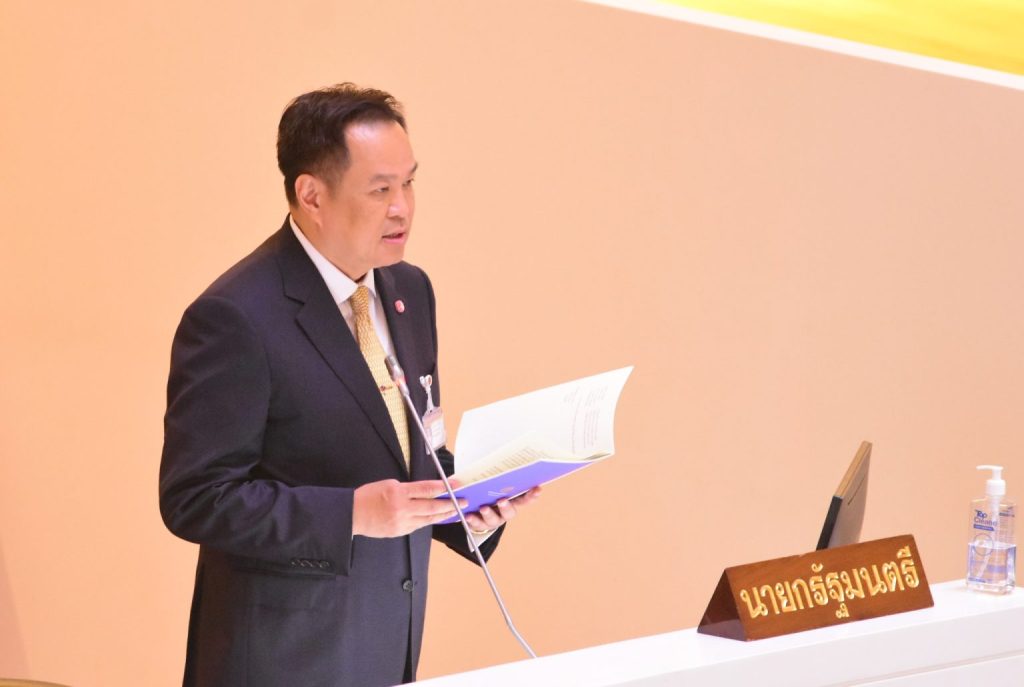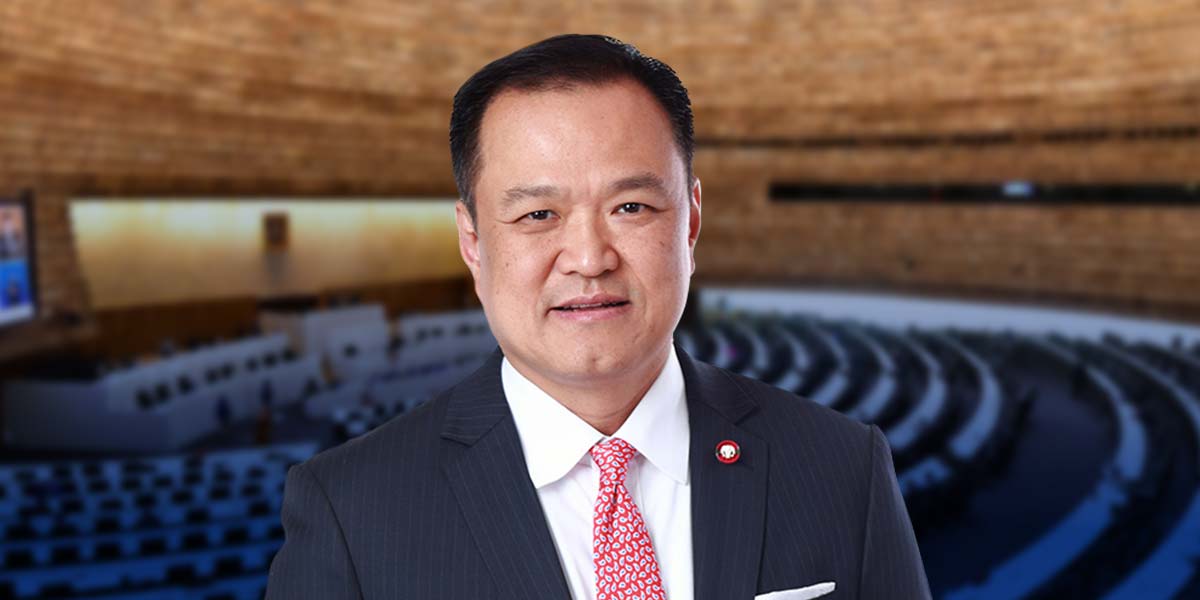On September 29, 2025, Thailand’s Prime Minister Anutin Charnvirakul delivered a policy statement to the National Assembly, addressing key policies that will guide the new cabinet’s administration amid widespread economic, social, political, and geo-strategic uncertainties.
The Anutin-led government pledged to govern under three core principles: upholding the three pillars of Thai nation (Nation, Religion, and Monarchy), adhering to democratic governance, and enforcing the rule of law with good governance for the benefit of the people.

Economic Measures:
1) Initiatives to boost incomes and reduce living costs (e.g., energy, drinking water, transport), with key programs like the “Half-Half” co-payment scheme and support for small traders, entrepreneurs, and local communities through digital technology and solar energy production.
2) Tackling consumer and SME debt by providing financial relief and improved access to funding, including measures to resolve retail debt and increase liquidity for SMEs.
3) Enhancing opportunities for small savers, including convenient access to government bonds and new savings lottery products.
4) Reviving confidence in tourism through safety improvements, anti-fraud measures, and incentives for both domestic and foreign tourism.
5) Trade and investment policies to counteract global disruptions, including the formation of “Team Thailand” to open new markets and positioning Thailand for OECD membership, as well as supporting affected businesses and farmers amid changing international trade measures.
5.1) Streamlining investment and regulatory environments to attract foreign investment, particularly in high-tech and future industries such as digital, artificial intelligence, semiconductors, and clean energy.
National Security:
1) Peaceful resolution of border disputes, especially with Cambodia, and fostering public participation through referendums.
2) Accelerated action for stability and livelihood improvements in Thailand’s southern border provinces.
Social Policies:
1) Strict crackdown on illegal gambling and rejection of legalizing gambling-related entertainment complexes.
2) Upholding the rule of law and implementing severe disciplinary and criminal measures against state officials involved in crime, particularly drug suppression, gambling, cybercrime, fake news, and political misuse of law enforcement.
3) Zero-tolerance against corruption in cooperation with national anti-corruption bodies.
4) Safeguarding Buddhism and other religions.
Environment and Natural Disasters:
1) Urgent disaster warning systems, disaster relief, and systematic resource management.
2) Promoting a low-carbon society and setting a zero net greenhouse gas emissions target by 2050, with emphasis on clean energy, electric vehicles, and measures to ease agricultural pollution and PM2.5.
2.1) Establishing a regulated carbon credit market and accelerating the enactment of key environmental laws.
Governance and Legal Reform:
1) Advancing digital government, promoting open data, efficient public administration, and true public-private-social sector integration—including virtualization and crisis management.
2) Fast-tracking regulatory reform by abolishing outdated laws, facilitating digital platform businesses, and forming a task force for policy implementation oversight.
Amid criticism from oppositions at the parliament, Prime Minister Anutin stated that he has already reached mutual understanding with all ministers. Even though they come from different parties, they must work as though they belong to a single party, adhering to the principle of open-mindedness, as well as praising and supporting those who succeed. He confirmed that every member in the government has been personally selected by himself for their virtue, knowledge, competency, experience, and the trust received from the public.
The Prime Minister further stated that the government is aware of concerns regarding transparency, noting that he has recorded all observations. He emphasized that all work is carried out in accordance with laws and regulations, and is fully subject to scrutiny. He reaffirmed that this government must be transparent and open to inspection.
Regarding the future of democracy, Anutin reiterated that the government will not exercise power arbitrarily, but will adhere to the majority’s voice and uphold fundamental principles to establish a solid foundation for democracy to flourish. He stressed, “No one can manipulate this Prime Minister.”
For criticisms labeling this government as merely a “caretaker government,” Anutin explained that October 1, 2025 will be counted as the first day, and parliament will be dissolved on January 31, 2026, according to the Memorandum of Agreement (MOA) agreed with the People’s Party, in order to return power to the people. He emphasized that this is a caretaker government tasked with addressing the damage caused by the previous administration, and will achieve success in all areas, including reputation, the economy, and other aspects of governance.





